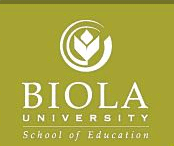
Keywords
Christianity and scholarship, identity, privilege, reflexivity, reflection
Abstract
This article explores the author’s privileged identities as a White, male researcher and English language educator in the context of relevant critical literature. I aim to understand how my privileged identities granted by race, gender, societal placement, and language interact with my identity as an evangelical Christian and how these identities impact my research and practice in working with multilingual transnational youth in a Canadian university setting. Highlighting the importance of reflexivity in qualitative research and its potential impact on both researcher and student identities, I probe my acquired identities (unearned societal placement) and ascribed identities (spiritual gifts, passions, abilities, experiences, and personality). I emphasize the asymmetrical nature of relationships and how this asymmetry may potentially contribute to the perpetuation of social hierarchies and dominance in the EAL classroom. To counter this potential dominance, I suggest that educators practice obedience to truth (Palmer, 1993) and adopt an attitude of moral humility (Young, 1997). I conclude with spiritual, pedagogical, and research applications to English language teaching and the Christian faith, showing how these applications derive from my identity negotiations.
Recommended Citation
Mossman, Timothy
(2015)
"Unravelling Power and Privilege in the Academy: A Personal Account,"
International Journal of Christianity and English Language Teaching: Vol. 2, Article 4.
Available at:
https://digitalcommons.biola.edu/ijc-elt/vol2/iss1/4
Included in
Applied Linguistics Commons, Christianity Commons, Language and Literacy Education Commons, Teacher Education and Professional Development Commons


